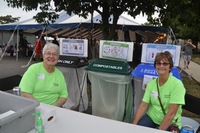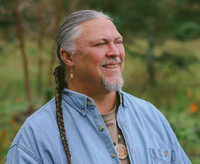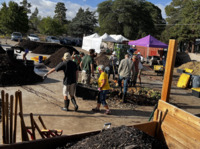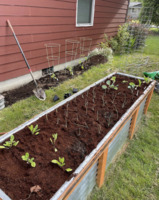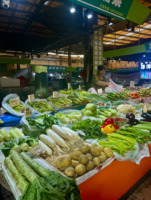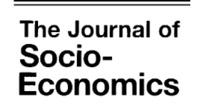Search
49 items
-
10 Eco-Mission Projects
Evangelical Environmental Network MOMS has created a list of family oriented service projects that focus on the environment. These ideas not only offer ways to serve the community, but also take care of God’s earth in simple but effective ways. -
For Love of Lavender
For Love of Lavender is an account of how Christine Sine, creator of Godspace and writer for Evangelical Environmental Network MOMS, encountered God through the beauty, fragrance, and abundance of the lavender in her garden. Reflecting on her garden informs her of God's work and calls to mind numerous bible verses, including Proverbs 27:9: The heart is delighted by the fragrance of oil and sweet perfumes, and in just the same way, the soul is sweetened by the wise counsel of a friend. Christine also mentions how to use these lessons to teach children. -
Congregational Profile: Our Lady of Perpetual Help, Grove City, OH: How it began in one parish
In 2016, prompted by Pope Francis’ encyclical “Laudato Si,” we at Our Lady of Perpetual Help Parish in Grove City, Ohio, held two 8-week sessions of discussions on the encyclical and at the end of the second session, our pastor, Fr. Daniel J. Millisor, appointed the discussion leader, Sister Nancy Miller, OSF as chairperson and called together a team to explore how the parish might lower our carbon footprint. The Creation Care Council (CCC) of our parish meets monthly for prayer, discussion and action in response to Laudato Si’s call for greater care for our common home.
We conducted a parish survey, with the intention of enhancing awareness among parishioners, as well as to determine if, and how, members were already incorporating recycling and composting into their daily lives. The results were highly, though not entirely, favorable. In addition to regularly inserting information and suggestions into our parish bulletins, taking the CCC members to tour a landfill, recycling plant, and the OSU Byrd Polar Research Center, we requested that all committees at the parish look at ways to reduce or eliminate their use of Styrofoam dinnerware. Rather than condemn polluters, we wrote thank you notes to businesses that showed environmental stewardship. We began annually purchasing and giving away seedling trees to plant on Earth Day. We took on trying to improve parish recycling efforts – providing new recycling containers for all parish offices, inviting a local official – an environmental expert – to explain to us what is and is not recyclable, preparing an interactive recycling quiz at the parish festival, and then attempting to bring recycling to the parish picnic and festival.
The efforts to incorporate recycling in parish events “failed” the first year, but we got it right the second year and this (the third) year, we successfully introduced food waste composting to Lenten Parish Fish Fry dinners, the Parish Picnic, and our largest parish event of the year: the Parish Festival. The 2019 Parish Festival served an estimated 5,000 meals, working with food vendors to increase their ability to serve compostable dishware and cutlery. In total, the CCC was able to divert 2,704 gallons of waste from the local landfill, which constituted 86% of all waste at the Festival.
We also exceeded all expectations in soliciting nearly 100 volunteers to help teach and monitor correct depositing of these materials - without tapping the usual volunteer corps that was still needed to keep the regular parts of the festival going. With the support of our pastor and dedicated CCC members, we’ve come a long way, and still feel like we have only just begun!
-
Bishop Hartley High School, Columbus, OH
Bishop Hartley has assembled a Care 4 Creation faculty committee, which focuses on long-term plans at the school. There is also a Care 4 Creation Association, which is for students and is also student-led. Instructors Rick Kohut and Ann Hawk have spearheaded some of the more long-term creation care projects there. Each have set up a vermicomposting bin in their classrooms, offering that it works well and is relatively low maintenance. Students from one of Rick’s classes had worked on a project where they created a poster/chart with pictures of endangered animals. Some of the students from Rick's classes engaged in the school's climate strike. One highly motivated student, Jamal, wrote a letter about the event which he sent to local politicians. Ann has been attending a yearly AEP Ohio energy efficiency program, and they in turn provide her with free energy savings kits for each of her students. AEP also offers energy saving kits for residential customers who are willing to complete their online Home Energy Profile. In addition, two new drinking fountains are about to be installed at the school that are designed to fill reusable water bottles. The school is also in the process of creating water bottles for sale with their school’s logo on them. The intent is to cut down on students and faculty purchasing and bringing in individual plastic bottles of water.
-
Engaged Organizations: The Catholic Foundation of Ohio - Columbus
The Catholic Foundation of Columbus, Ohio is designed to be responsive to interests that come from within the diocesan parishes and schools. To the extent that those interests have included creation care work, there has been grant activity. Dan Kurth, Director of Grants for the Catholic Foundation, offers that the foundation’s rubric for creation care initiatives is essentially: Does this project have any green energy sustainability pieces to it? The energy efficiency component of the foundation’s responsive grants is the main integration of a Laudato Si' principle into the foundation's grant work. As the Laudato Si encyclical has grown in awareness, more funding has become available as energy efficiency-related projects have become more commonplace over time.
The foundation has recently partnered with the Columbus Catholic Diocese on their Diocean Loan LED program, which has had considerable impact on diocesan savings. In addition, the foundation encourages schools to establish their own maintenance reserve funds in order to maintain more efficient operations. Specifically, there is a push to have schools and parishes upgrade their boilers, change over to LED lighting, and replace their windows with more efficient ones. -
Engaged Organizations: Christ the King Catholic Church, Columbus, OH
Jason Cervenec, Education and Outreach Director for OSU's Byrd Polar and Climate Research Center, has helped plan and carry out a number of initiatives for events and projects at Christ the King Catholic Church over the past few years. With the assistance of Deb Steele, the Volunteer Coordinator for Ohio Interfaith Power and Light (Ohio IPL), Jason has organized energy audits that were conducted by Ohio IPL programming and support. The LED retrofit with diocese Facility Director, Bruce Boyan, has been a noteworthy achievement at the parish as well. Additional energy efficient projects have included window replacement (also with Bruce) and the installation of an HVAC system. While the parish center is currently undergoing renovation work, Jason and other parishioners have reviewed the plans to look for additional efficiency and sustainability improvements. Recently, Jason had designed creation care bulletin inserts, with feedback from the Creation Care team at the Columbus Catholic Diocese, that have been widely circulate around town. The annual creation care information program that Jason initiated has garnered substantial support, with roughly 30 people in attendance each time. An additional work in progress project includes the installation of a bike rack station outside of the parish. -
Columbus YMCA Youth Engage in 4-H Urban Gardening Program for Cultural Exchange with Youth in Accra, Ghana
This summer, dozens of Columbus North YMCA youth participated in 4-H urban gardening programs as part of an urban agriculture exchange program with 4-H and YMCA youth from Accra, Ghana. In response, in May of 2017, three Ghanaian youth and an advisor will travel to Columbus to share their urban agriculture experiences at the annual Ohio Future Farmers of America (FFA) conference at the Ohio State Fairgrounds. Please click the link below to read more: -
Fasting for Climate Justice
Fasting for Climate Justice is a resource from Global Catholic Climate Movement (GCCM ) on the practice of fasting for climate action through two initiatives: meatless Fridays and monthly fasting. The GCCM encourages abstinence from meat on Fridays as a way to reduce one’s negative impact on global climate change. The GCCM also promotes fasting for the climate which takes place the first day of each month. -
Evangelical Environmental Network: Trump Budget would harm National Parks and the Protection of God’s Other Creatures
The president of the Evangelical Environmental Network, Rev. Mitch Hescox, made a statement saying that the budget proposed by the Trump administration is a “devils bargain,” which would harm national parks and the protection of God’s creatures.
“The Trump Administration’s budget, if implemented, would be an abdication of our stewardship of our public lands, which are entrusted to each generation to pass on to their children.” -
Becoming a CreatureKind Institution
“Having compassion for others begs the question of who ‘the others’ are. The animals whom we farm are sentient beings and individuals in their own right, even when they are crowded together in barren cages or windowless sheds. They are surely – in their billions – ‘others’ who deserve and desperately need our compassion. I wish CreatureKind great influence in bringing compassion to these fellow-beings of ours.”
– Joyce D’Silva, Ambassador Emeritus,
Compassion in World Farming
CreatureKind is a Christian animal welfare group that works to help institutions improve their practice as it impacts farmed animals, with benefits for humans, animals, and the environment. Becoming a CreatureKind institution means committing to a cycle of reviewing current sourcing, setting goals for improved practice, and acting on them, together with engaging your community about the program. The program have two major goals: reduce consumption of animal products and obtain remaining animal products from higher welfare. -
CreatureKind Church Course
CreaturKind has created a 6-week course to help Christians think about what their faith means for animals. The course is free and is meant to assist churches in learning about animal welfare and how to care for animals faithfully. They aim to encourage Christians to consider what they believe about God’s creatures and how they might move toward living out those beliefs as members of the body of Christ. -
Sustainability Photo Contest
This RESTORExchange photo contest is being brought back from the pre-COVID era, and with an added collaboration with the Sustainability Institute. It's based around the question "What does sustainability look like?" This can include sustainability in environmental justice, technology, energy, lifestyle and wellbeing, society and culture, economy and politics, and any other context where you see sustainability in action. We want to see your perspectives and show all the different places that sustainability is practiced! Winning photos will be decided by a panel of judges (yet to be determined), and the top four photos will win a prize! First place will receive $400, second place will receive $300, third place will receive $200, and an honorable mention will receive $100. Submissions will be accepted through March 15, 2023. -
Decolonizing Thanksgiving
"As we head into the Thanksgiving holiday weekend in the United States, it’s great to think about all the things we can be grateful for. It is good to have a time to pause and reflect, to participate in the seasonality of gratitude for the year’s bountiful harvest, and to gather with family and friends. (We’ll ignore the über-consumerism of the day following Thanksgiving…)
Many of us probably know by now, however, that the story many of us learned in school about the first Thanksgiving is rather inaccurate at best, and racist and paternalistic in many ways, with a focus on the Manifest Destiny idea of the divine mandate for Europeans to conquer the “New World” in the name of Christ and country.
A few questions come to mind (at least my mind), for those of us with European-American roots, such as:
Should we even celebrate Thanksgiving, since it’s so tainted with colonialism?
What might it look like to “decolonize” our own understandings and our culture?
How can we do this work in a way that encourages our own folks to partner, rather than making them (our White brethren) feel further ostracized, but while also speaking real truth?
What can we do this Thanksgiving to begin to reconcile relationships damaged in the colonial era, both human to human and human to this land?" -
Checking on the Chickens With the Next Generation
"Checking on the chickens with the next generation. We built the coop from recycled materials, the chickens eat much of our food waste, provide eggs, and encourage us to think about the cycle of our consumption and how we can be more sustainable. We want our son to approach his entire life this way, and these chickens will be his responsibility as soon as able. We live in the city of Columbus so we try to bring a different lifestyle to city living."
Taken by Grace Freeman. Submitted to the Sustainability Photo Contest. -
EPN Signature Earth Day Event - Monday, April 22, 2024: Eat This Earth Day! Ohio's Native Plants for Food
"Ohio State’s Environmental Professionals Network, in collaboration with the Chadwick Arboretum and Learning Gardens and native plant enthusiasts from across the state, proudly invite you to eat and drink from Ohio’s native plants this Earth Day! Discover through your senses, the edible flora of the Buckeye State. Over long periods of history, through the tastes, smells, and eyes of diverse native wildlife and human cultures, both ancient and present, these plants have sustained life."
This event will take place on Earth Day, April 22, 2024 from 4:45 pm to 7:30 pm. Admission is free and the event will be held at the Fawcett Center in Columbus, Ohio. Food and drinks will be provided. -
Eat Close To The Ground!
"Eat Close To The Ground!" Taken by Linda Sterling. Submitted to the RESTORExchange Sustainability Photo Contest. -
Exploring Fresh Produce in a Chinese Wet Market
"Exploring Fresh Produce in a Chinese Wet Market: The diverse array of vegetables is what I long for the most about my homeland China, and there is no better place to shop for vegetables than wet markets, where produce is locally sourced. This is what sustainability looks like for me––where people eat green and shop locally. The photo features a typical vegetable stall at Tuandao Market in Qingdao, my partner’s hometown, where we savored last year’s summer together." Taken by Mianmian Fei. Submitted to the RESTORExchange Sustainability Photo Contest. -
Gateway Into Sustainability
"This photo depicts a gateway into sustainability. Portraying a pathway into a huge lush garden. I believe gardens of any kind are a sustainable practice. That brings people closer to the earth while also providing a variety of amenities for said people. Not to mention the wildlife that flourishes too.This photo was taken in the fall of 2022 at the botanical gardens in Madison WI. In my mind I envision you’re entering a new world which is a lush paradise. Among that it’s filled with vocal birds, reptiles of all kinds, an array of colorful flowers. On the flip side I also envision as if you’re leaving the suffocating, bland concrete world behind." Taken by Logan Gosse. Submitted to the RESTORExchange Sustainability Photo Contest. -
Shepherd's Fest (Shepherd's Corner)
Shepherd's Corner ecological center provides information regarding their annual festival on their webpage:
"Explore our food pantry gardens, take a hayride around the property, meet our sheep, and walk the meditation trail & labyrinth. Savor delicious food from a local food truck (Moody Trudy). Meet the Jefferson Township fire department and check out a fire truck up close. Watch Gail Maraman, a local felt artist, demonstrate her art. Chat with AEP representatives about electricity savings, consider more responsible energy use with Columbia gas. and learn about the environmental efforts of Green Spot Columbus. We will have a farm stand featuring of our naturally grown produce, 2019 maple syrup, and crafts made by the Dominican Sisters of Peace and volunteers." -
Ancient Judean Dates
A date tree planted in Ketura, Israel from 2000 year old seeds found at an archeological site in the Judean wilderness has finally bore fruit earlier this month (September 2020). The harvest was hailed a modern miracle of science. “In these troubled times of climate change, pollution and species dying out at alarming rates, to bring something back to life from dormancy is so symbolic,”... Date palms were praised in the Bible and the Quran, and became symbols of beauty, precious shade and succulent plenty. -
What Karl Marx has to say about today's environmental problems
Ted Benton, a Professor of Sociology at the University of Essex, writes about how Marx's theories can be applied to modern environmental issues such as climate change. He talks about how Marx's ideas about capitalism relate to current exploitation of nature, and specifically about soil degradation which was an issue during the 1860s when Marx was alive. He also includes problematic parts of Marx's attitudes towards nature, such as his praise of increased productivity of land that may have inspired Stalin. -
Himalayan Institute
Founded in 1969 by the great teacher and humanitarian, Swami Rama, the Himalayan Institute acts on the basis of yoga tradition and Eastern spirituality. Through the living connection to an ancient wisdom tradition of the Himalayan Masters, and the guidance of spiritual head Pandit Rajmani Tigunait, the Himalayan Institute seeks to serve communities across the globe of those who seek to live their spiritual values. The institute provides resources for anyone seeking spiritual wellness such as yoga and meditation training, local retreats and seminars, and domestic and international excursions, frequently taking the form of a trek through the Himalayas. The Himalayan Institute strives for sustainable living in partnership with the community in Honesdale and also in their projects in India and Africa- providing sustainable living, jobs, and farming in several different communities. -
Religion and animal welfare: Evidence from voting data
This article, written by Julio Videras, works to analyze the factors that contributed to a 2002 ban on farming practices in Florida that were deemed cruel to pigs. Not only is religion taken into account (specifically Catholicism and Evangelical denominations), but political and socioeconomic factors are also considered. Videras argues that political affiliation and socioeconomic factors play more of a role in people's opinion of the ban than religious factors do. -
How to Green your Parish
This article is about the importance of parishes to participate in environmentally sustainable actions based on Pope Francis’s Laudato Si’. It encourages parishes to strive to become more eco-friendly by taking work together as a community and focusing on change one issue at a time. The article focuses on three main areas: reducing the parishes greenhouse gas, sustaining food and land use, and preserving water.



